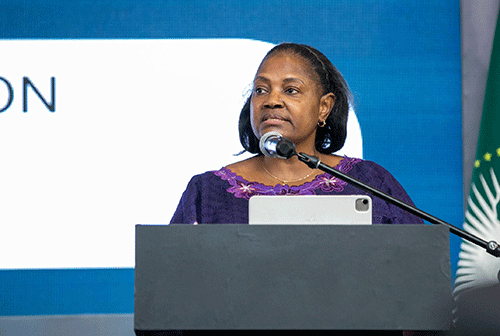THE chairperson of the African Union’s Peace and Security Council Emilia Ndinelao Mkusa says the latest wave of coups d’état poses challenges that have hampered Africa’s development.
Speaking at the second AU Reflection Forum on Unconstitutional Change of Government in Accra, Ghana recently, Mkusa said the continent has witnessed a resurgence of military coups in the past three years, which is a huge concern for the progress of the region.
“We are still facing a serious challenge of unconstitutional changes of government. In March 2022, when we met for the first Accra Forum, we had four AU member states under suspension from the activities of the union due to the unconstitutional
changes of government. As we meet today, two more members have been suspended, making it a total of six member states,” she said.
Mkusa noted that since the last meeting, coups d’état increased on the continent
and that several failed attempted were also made.
“Thus, this requires us to redouble our efforts in addressing this challenge,” she
said. Mkusa said the ultimate aim is to effectively prevent the recurrence of the scourge, guarantee peace, security, stability, sustainable development, as well as prosperity in Africa, and look at the root causes and main drivers of this scourge to bring it under control. The Peace and Security Council is deeply concerned with the resurgence of coups d’état on the continent. “As a standing decision-making organ on behalf of all AU member states, the PSC has been consistent and firm on issues of military takeovers and any other forms of UCG, in line with the AU instruments. The AU has a zero-tolerance policy for unconstitutional changes of government, and that is what is guiding the PSC,” said the Namibian diplomat who is attached to Ethiopia.
The ambassador said the PSC has been backing and supporting the decisions of the regional economic communities
and regional mechanisms, where possible, about coups d’état, adding that the PSC’s efforts will continue to be sharpened and be enhanced.
“Our continent faces a serious number of threats in the peace and security landscape, but the most critical issue to be considered is the governance at national levels. It is regrettable,” she highlighted.
“We have been in denial and regard it as a taboo to admit that our governance structures are facing challenges that need to be addressed. This has largely been a result of the sensitivities about the interface between sovereignty and AU instruments on democratic governance,” Mkusa said.
She stated that if nations fail to take into account the will and legitimate expectations of the citizens or continue to manipulate the constitutions:
“We will continue to create recipes for more popular uprisings, military takeovers, and other forms of unconstitutional changes of government on our continent. All these will be a result of the frustrations of the citizens, who are failing to find appropriate channels to address their concerns,” she said.
She underlined the need to prioritise the involvement of women and youth in shaping the continent. Speaking at the same occasion, Namibian member of parliament Patience Masua said coups don’t just happen, they need massive funding. “We need to find out, who are the funders of disruptions on our countries. We need also to transform how our civil society organisations work; they respond to who funds them. Hence, we need to institutionalise laws that address these issues,” she said.
She stated that civil society organisations are important, and they matter, therefore, law reforms should be done to best cater to them as they play a crucial role in societies.
“Our responsibility is economic emancipation and law reform recognises that we must transform our laws to ensure they speak to the realities of the day,” she highlighted.
Ghana’s president Nana Akufo-Addo said the Accra Declaration effectively expressed his government’s commitment to address comprehensively the underlying drivers of unconstitutional changes of governments, particularly the aspects of governance deficits, and the manipulation of democratic processes, including tampering with electoral laws, constitutional provisions, and term limits to benefit at the expense of democratic norms and principles.
“It appeals to the member states to respect their respective constitutions, especially adherence to presidential term limits, and to organise free, fair, transparent and credible elections in line with national laws and international norms, as well as respecting the outcomes of elections,” stated Akufo-Addo.
-psiririka@nepc.com.na



